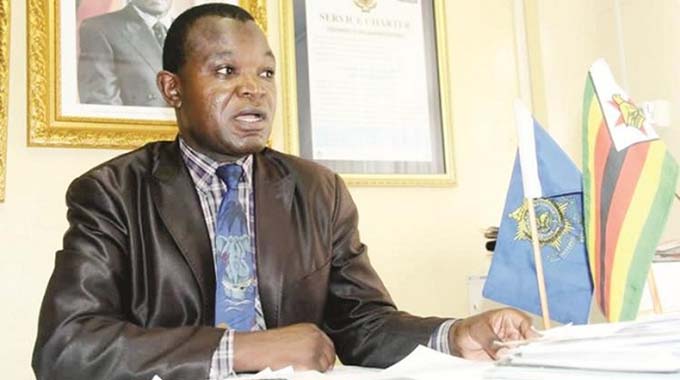Limpopo River: Breeding ground for Covid-19, trafficking

Thupeyo Muleya in Beitbridge
Limpopo River is a vein of water famed for demarcating Zimbabwe and South Africa. Since time immemorial, its 360km stretch — most of which forms the border of the two countries — has been scarred by a scullery of footpaths that, like the arms of an octopus converge from both sides.
This river has seen a lot of vice as people cross the two countries. It has seen smuggling. It has seen robberies. It has seen rape. It has seen rowdy and shoddy deals. It has seen murder and little everything else criminal, but it remains mum. Silent! It keeps secrets.
To many people, the Limpopo River is life in terms of agriculture, tourism and cross-border migration related activities.
But when the truth is said, on the downside, the Limpopo River has brought perennial headaches to the two governments.
Authorities somehow see the natural barrier as a conduit for violations of a number of domestic laws in cases where irregular migration, trafficking and smuggling are concerned.
Security personnel from both countries often hold joint operations to maintain law and order on the border line where cases of rape, murder, robberies, smuggling, cross-border thefts and border jumping are rife.
At the centre of these crimes are villagers living along the river, international and regional travellers including those from the Horn of Africa.
In the last five years, South African and Zimbabwean authorities have been doing a lot to minimise criminal activities along this borderline.
However, 2020 has proved to be an acid test for them with the Covid-19 pandemic spreading like veld fire.
At the height of the pandemic, most countries in the world closed their borders to non-essential human traffic and are only allowing commercial cargo through their ports.
The state of affairs along Limpopo River has seen a breed of small-time and big-time wheeler-dealers setting base on the banks.
In the last seven weeks, there has been rampant smuggling of people and goods, raising worries on gate keeping of travellers to curtail the spread of coronavirus in both countries.
Lately, there has been brisk business in this area where vehicles with border jumpers or smuggled goods shuttling on both sides of the river between the estimated 200 illegal crossing points now common.
It costs between R50 and R100 for one to pay thugs manning crossing points for access into either country and the price depends on the distance between the point and the two towns.
For transportation from Musina town to the river, people pay between R100 to R5 000 depending on what is being transported and the same case applies on the Zimbabwean side.
Some of the known illegal entry points include; Mai Maria, Panda Mine, Dite, Tshikwalakwala, Mawale, River Ranch (Beitbridge East) and Sentinel, Tshivhara, Shashe (Beitbridge West).
According to police figures, 22 smugglers were arrested from the Limpopo River between 30 March and 22 May, while several vehicles were seized carrying goods worth nearly R1 million.
These (goods), mainly groceries and electrical gadgets attracted a customs import duty of R551 737.
In the same period under review, police intercepted a haulage truck smuggling groceries from South Africa with a contraband of groceries worth ZW$1, 280 292.00.
Forty one Malawian immigrants were picked by the police after skipping the border from South Africa through the Limpopo River and nine are being kept at the NSSA quarantine centre in Beitbridge.
The immigrants tested positive to Covid19 during Rapid Testing and Screening, while 32 others have been sent to Harare for repatriation.
In addition, 17 people were picked up at various illegal points where they were facilitating smuggling of goods and people. They were also put into quarantine before escaping after one week.
These are mostly villagers living along the borderline and make a living from criminal activities there.
The state of affairs at the border front resulted in most stakeholders agreeing that there is a need for more security personnel deployments, on foot and motorized patrols to curb crime on the front-line.
National police spokesperson, Assistant Commissioner Paul Nyathi said more deployments and surveillance were being done along the border with South Africa.
“We have deployed more manpower and are employing a number of strategies which have resulted in the arrest of smugglers and at the same time preventing illegal migration activities,” he said.
“Let me also warn those engaged in criminal activities that the ZRP and other security agents are on high alert and we will not take lightly to people compromising public health.
We encourage all those coming into the country to make use of proper channels,” he said.
“There is a great risk in terms of security and health safety matters along the border and as law enforcers we will not fold our hands. Members of the community are encouraged to report all illegal activities within their areas to the police”.
Beitbridge Rural District Council chief executive officer Mr Peter Moyo said they had roped in traditional leaders, the local Covid19 Task Force, non-governmental-organisations and parliamentarians to increase awareness campaigns in rural areas.
He said members of the community were being discouraged from luring their relatives in South Africa to cross borders illegally during the lockdown.
“This is everyone’s fight and we are working with all like minds to ensure that the risk associated with the spread of the pandemic through illegal migration is kept at minimal,” said Mr Moyo.










Comments